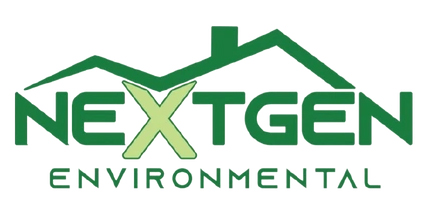Radon Mitigation, Basement Waterproofing,
Mold Remediation & Water Testing in Elmira, NY
We are proud to serve Elmira, NY
Elmira, NY, a charming city located in the Southern Tier of New York State, is known for its picturesque landscapes and rich history. The climate in Elmira is characterized by four distinct seasons with warm summers and cold, snowy winters. The area also experiences significant rainfall throughout the year, particularly during spring and fall months, which can lead to increased humidity levels. This type of weather pattern makes Elmira prone to sudden downpours and heavy snowfall, which can cause water damage to homes if not properly managed.
One crucial aspect of home maintenance in Elmira is basement waterproofing. Due to the city’s climate, basements are susceptible to moisture infiltration, which can lead to mold growth, structural damage, and even health hazards for residents. Waterproofing a basement ensures that water is effectively diverted away from the home’s foundation, preventing costly repairs and maintaining a healthy living environment. By investing in proper basement waterproofing, homeowners in Elmira can protect their property from the harsh elements and enjoy peace of mind knowing that their home is safeguarded against potential water damage.
NextGen Environmental proudly serves the residents of Southern NY, offering the best solutions for radon mitigation, mold removal, water testing as well as basement waterproofing and crawl space repair. NextGen Environmental is the only company in offering the iBasement Systems and Crawl Space Systems certificates. Our goal is to deliver services that makes homes healthy, dry and comfortable year-round.
NextGen Environmental Services in Elmira, NY
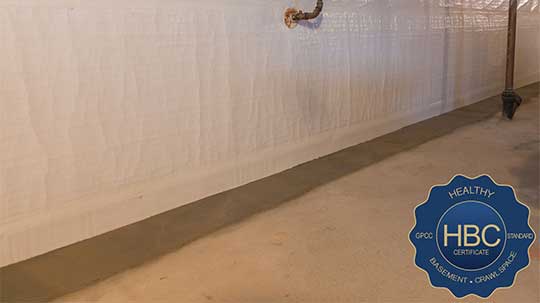
Basement Waterproofing
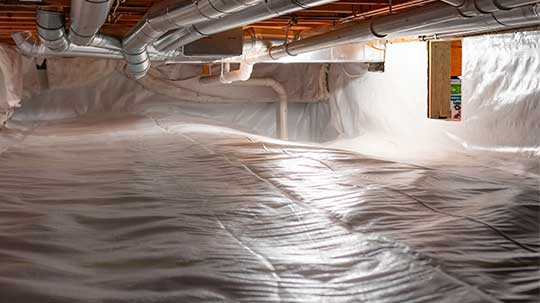
Craw Space Repair

Sump Pumps
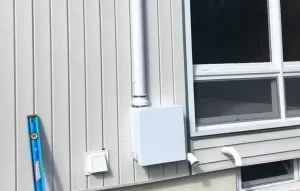
Radon Mitigation
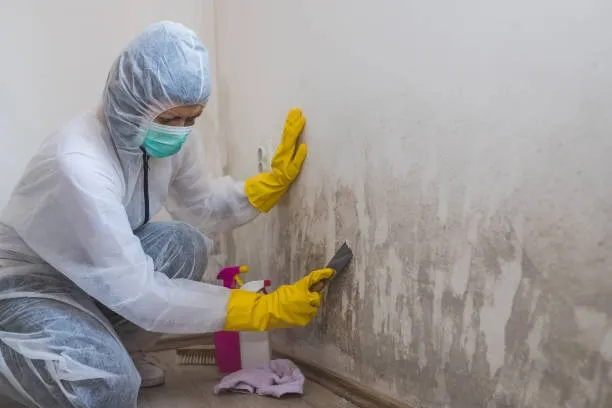
Mold Removal
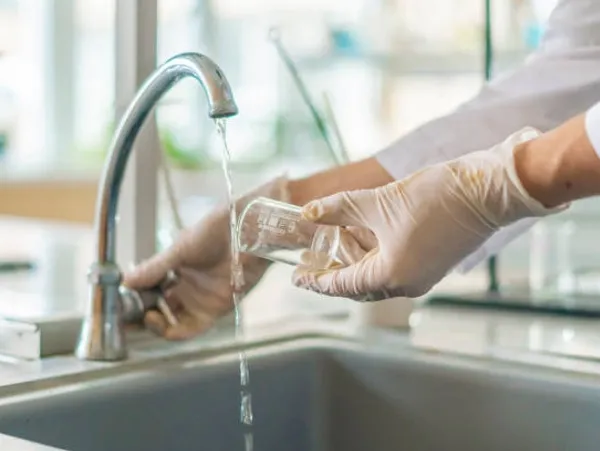
Water Testing
Frequently Asked Questions in Elmira, NY
Basements
What kind of waterproofing system you install?
Due to our commitment to always deliver the healthiest options for our customers, we primarily install closed, internal perimeter waterproofing systems, to minimize radon and moisture intrusion.
Do you install exterior French Drains?
Conventional French Drains tend to fail overtime, and are very hard to repair or service when that happens. There is not guarantee attached to them. On the other hand, the systems we do offer, with six levels of protection, carry a nationally-backed lifetime warranty.
Can your system stop or prevent basement flooding?
Our patented iBasement Systems include the iBasement Pump Controller, the most advanced basement protection system in the world. It monitors the entire drainage system, sends email alerts if something is wrong, and if necessary overrides pump controls to keep your basement dry until the technician arrives.
Crawl Spaces
Do I need to seal my crawl space?
Crawl space sealing, or encapsulation is the only science-backed way to treat and prevent moisture problems in the crawl space. It includes drainage improvements, lining the space with a sturdy vapor barrier, and using a dehumidifier to control humidity
My crawl space vents are not working. Do I need a fan?
Keep in mind that whenever you allow outside air to enter the crawl space, it is bringing in outside moisture. It is also allowing mold spores,pests and wildlife inside. The best approach is to encapsulate it instead, isolating it completely from the outside.
Do I need crawl space insulation?
Winters in Southern NY can be quite harsh, so crawl space insulation can help you save on heating bills and improve comfort in your living area. We only recommend insulating crawl spaces that are encapsulated. Insulation batts applied between floor joists in a vented crawl space are not only innefective. They are also know to favor mold growth.
Sump Pumps
Do I need a new sump pump?
In short, if you are experiencing water intrusion, especially during heavy rains, your sump pump is not doing its job. If your sump pump is older than 7-10 years, if it looks rusty and corroded, or if the sump pit is dirty and filled with debris you might benefit from installing a new pump. Other signs of a failing sump pump include constant churning regardless of the weather, unusual noises and fol odors coming from the sump pit.
Do you installl battery backup sump pumps?
Yes, we do. We install battery backup on your existing sump pump, but also install our advanced single and dual sump pump systems, complete with powerful pumps, sump liner, battery backup and the exclusive iBasement Pump Controller that monitor your entire system for extra peace of mind. Learn More about the iBasement.
How do I know my sump pump is working if I am not home?
NextGen Environmental is proud to be the only authorized dealer in Elmira, NY offering the revolutionary iBasement Pump Controller — the most reliable basement protection system in the world, It monitors your basement, emails you when problems arise, and if necessary override pump controls to keep your basement dry until help arrives. Whether you are at home, or away from it. Learn More.
Radon
What is radon, and why is it a concern?
Radon is a radioactive, colorless, odorless, and tasteless gas that occurs naturally as a decay product of uranium in soil, rock, and water. It can seep into homes and buildings through cracks and openings in foundations, posing a health risk to occupants. Long-term exposure to high levels of radon has been linked to an increased risk of lung cancer, making it the second leading cause of lung cancer after smoking.
What radon levels are considered unsafe for homes?
It’s essential to test your home for radon in Southern NY regardless of the regional average, as levels can differ from one property to another.The U.S. Environmental Protection Agency (EPA) recommends taking action to reduce radon levels if they are at or above 4.0 pCi/L.
How to decrease high radon levels in my home?
If testing indicates high radon levels in your home, it’s essential to take measures to reduce them. One effective method is to install a radon mitigation system, which typically involves a vent pipe and fan system to draw radon gas from beneath your home and release it outside. Sealing foundation cracks and improving home ventilation can also help reduce radon levels. It’s recommended to consult with a certified radon mitigation professional to determine the best solution for your specific situation.
Mold Remediation
What is mold, and is it dangerous?
Mold is a type of fungus that grows in damp or humid conditions, both indoors and outdoors. It reproduces through tiny spores, which can become airborne and settle on surfaces, potentially causing various health issues if inhaled in large quantities. Mold can cause allergic reactions, respiratory problems, and exacerbate existing health conditions, especially among individuals with compromised immune systems or pre-existing respiratory issues. Additionally, mold can cause structural damage to homes and buildings, as it feeds on organic materials such as wood, drywall, and insulation.
How do I know if i have a mold problem at home?
Common, but usually invisible signs of a mold problem at home include musty odors, indoor allergy symptoms such as sneezing, coughing, or itchy eyes. Visible signs of mold growth may include black, green, brown, or gray patches growing on surfaces, water stains, discoloration, or peeling paint on walls and ceilings, warping or buckling of walls, floors, or ceilings due to moisture damage
If you suspect a mold issue, it’s essential to have a professional mold inspector assess the situation and determine the extent of the problem.
What is mold remediation, and how does it work?
Mold remediation is the process of removing and cleaning mold-contaminated materials from a building to restore a healthy living environment. The process typically involves identifying the source of moisture and addressing it, isolating the affected area to prevent cross-contamination, removing contaminated materials, such as drywall, insulation, and carpets, cleaning and disinfecting non-porous surfaces, drying and dehumidifying the area to prevent mold regrowth, and restoring the affected area.
Mold remediation should be performed by trained, certified professionals to ensure the proper handling of contaminated materials and the effective removal of mold.
Water Testing
Why should I test my water supply?
Water testing is essential for ensuring the safety and quality of the water supply in homes and businesses. Regular testing can help identify potential contaminants that may pose health risks or affect the taste and appearance of the water. By identifying these issues early, you can take appropriate steps to address the problem and protect the health of your family, employees, or customers.
What types of contaminants should I test for in my water supply?
The specific contaminants you should test for depend on your location, water source, and any known issues in your area. Some common contaminants to test for include bacteria, heavy metals, chemicals, and other pollutants that may pose health risks or affect the taste and appearance of the water. You may also want to test for any specific contaminants known to be problematic in your region. Local health departments or environmental agencies can often provide guidance on which contaminants to test for based on local concerns.
How often should I have my water tested?
The frequency of water testing depends on your specific situation and any concerns you may have about your water quality. As a general guideline, private well owners should test their water at least once a year for bacteria, nitrates, and any other contaminants of concern. If you receive water from a public water system, you can typically find water quality reports from your supplier, but you may still choose to test your water if you have concerns about your home’s plumbing or potential contamination sources.
What our customers say about us
Completed Jobs from Elmira, NY
April 27, 2024
NextGen installed a GrateDrain waterproofing system with FinishShield and a battery back up for the clients sump pump to create a water free basement.
March 04, 2024
NextGen installed a radon mitigation system in the attic space and exited the system to the roof. Levels have lowered to fall below EPA standards.
February 15, 2024
NextGen backfilled the cistern, installed dimple shield and then encapsulated the crawlspace area and installed a dehumidifier with condensate pump to resolve the water issues.
January 12, 2024
NextGen installed a radon mitigation system and was able to lower the levels of radon down to 2.5pCi/L.
March 31, 2023
NextGen Environmental dug a perimeter drain and ran vapor barrier along the walls to help direct any water coming inside to go to a dual sump pump system. This pump system is monitored via iBasement which will alert the homeowners and NextGen if any pumps fail or stop working.
August 16, 2022
NextGen Environmental installed a a radon mitigation system and was able to conceal the majority of the system. NextGen was able to reduce the radon levels from 12.8pci/L down to 2.2pci/L.
October 15, 2022
NextGen Environmental performed a radon mitigation installation and was able to reduce radon levels from 6.7pci/L down to 0.6pci/L.
October 5, 2022
NextGen Environmental installed a radon mitigation system and was able to reduce radon levels from 11.0pCi/L down to 1.0 pCi/L
